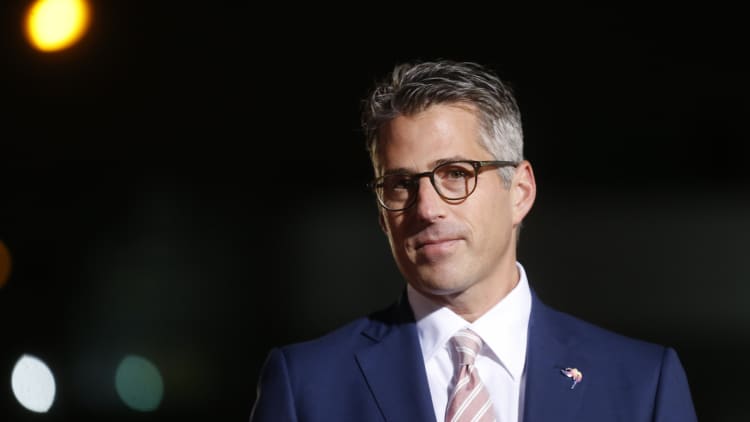
The CEO of one of the country's biggest sports agencies told CNBC on Thursday that the pay gap between the men's and women's players for the U.S. national soccer teams is shameful and cannot last.
"It's an untenable position for U.S. Soccer," said Casey Wasserman on CNBC's "Squawk Box" from Sun Valley, Idaho. "They should be paid absolutely equally as the men, period. I don't know why it's taking so long. I don't even know why it's a conversation."
As the U.S. women's national team completed an undefeated run to its fourth World Cup title, the players continued to speak up about their lack of pay relative to the men's side.
The team sued the U.S. Soccer Federation in March, alleging gender discrimination. The lawsuit said that if the men's and women's teams both played a similar 20-game schedule of nontournament "friendlies," the women would be paid just 38% of what the men would make.
The lawsuit also alleges the federation paid the men's team roughly four times more in bonuses for the 2014 World Cup, when the men lost in the Round of 16, than it paid to the women's team for winning the 2015 World Cup. According to documents obtained by The Guardian, the current labor agreements with U.S. Soccer would pay each member of the women's team about $260,000 for winning a World Cup, compared with more than $1.1 million for each men's player.
The team and the federation agreed to mediation in the lawsuit last month, according to The Wall Street Journal.
At the parade Wednesday celebrating the most recent championship by the women's team, players led the crowd in chants of "equal pay." The men's team has never won a World Cup and failed to qualify for the most recent tournament in 2018.
"The fact that we're talking about it and that they have to win a World Cup to really make it a thing is crazy. This should have been done a long time ago, and shame on U.S. Soccer for not doing more," Wasserman said.
The Wasserman agency has created a new division called The Collective, which is focused on female athletes and entertainers. The agency represents about 150 female athletes, including Megan Rapinoe, who starred for the U.S. during the World Cup, and several of her teammates.
Wasserman said he believes that the players have a bigger audience than only women and girls, adding that he has had business leaders ask him which players he represents.
"It's incredible, and I hope the world recognizes how powerful they can be," Wasserman said.
World Cup revenue for U.S. Soccer comes in part from prize money from FIFA, the organization that runs international soccer. The total prize money available in the women's tournament was $30 million, well short of the $400 million pot in the last men's tournament.
The victory in the title game over the Netherlands was the most watched soccer game in the United States since 2015 and topped the 2018 men's final by 22%. It is not clear how ratings variations affect revenue for U.S. Soccer.
The U.S. Soccer Federation did not immediately respond to a request for comment.


